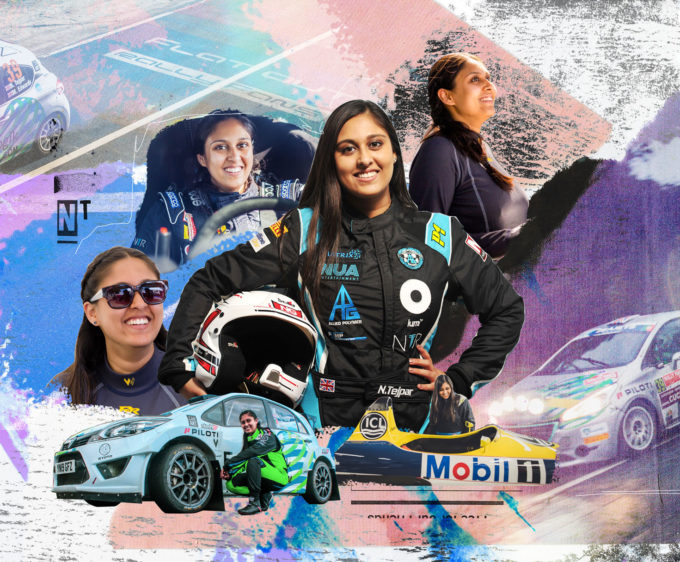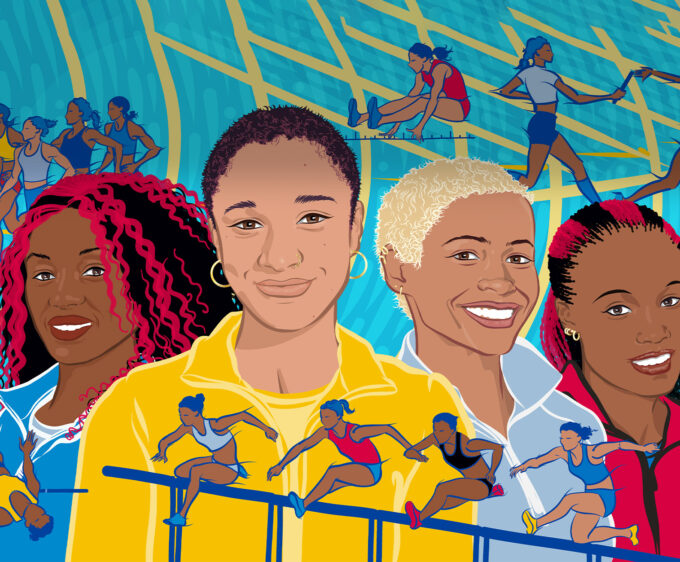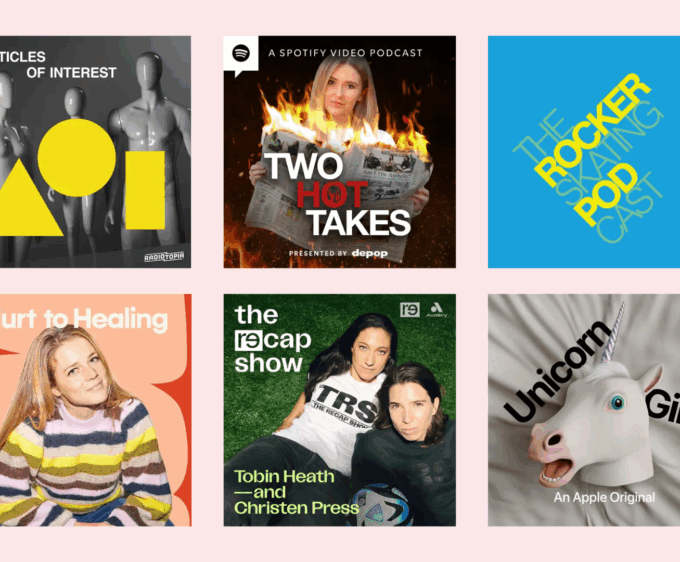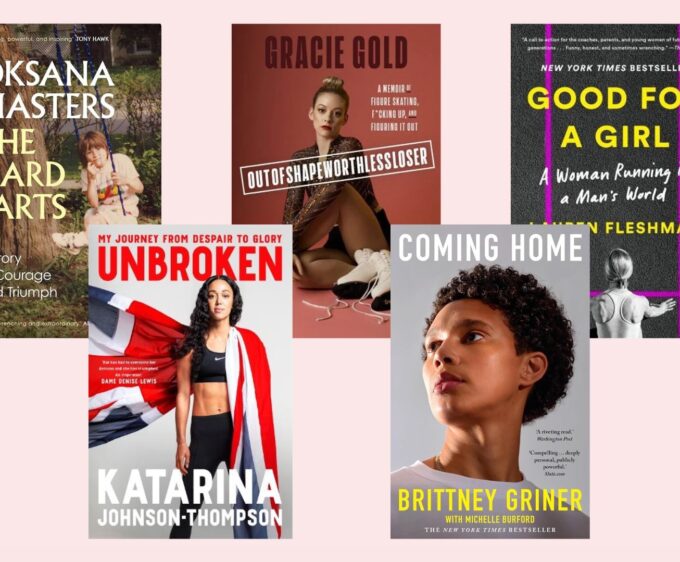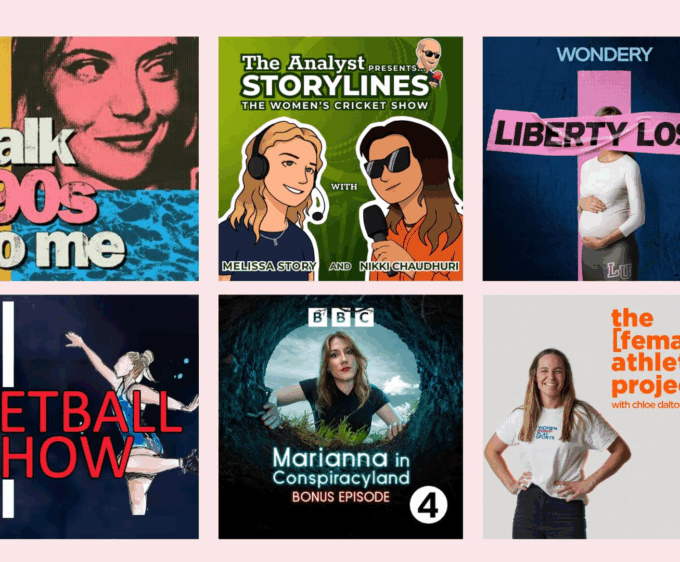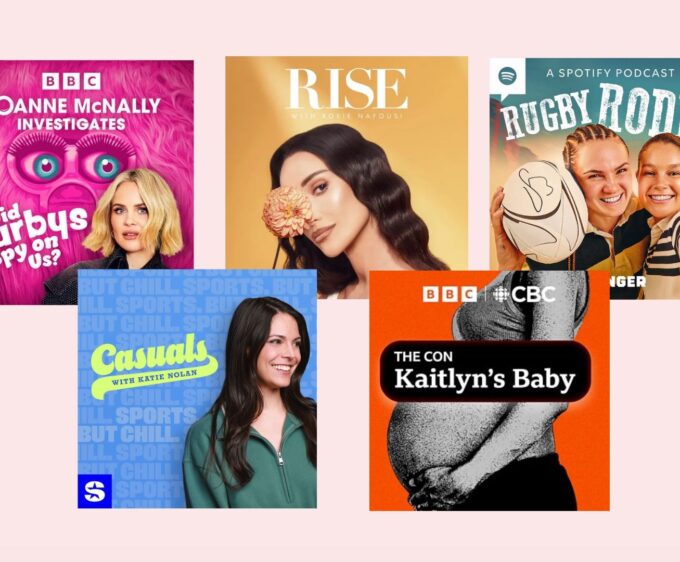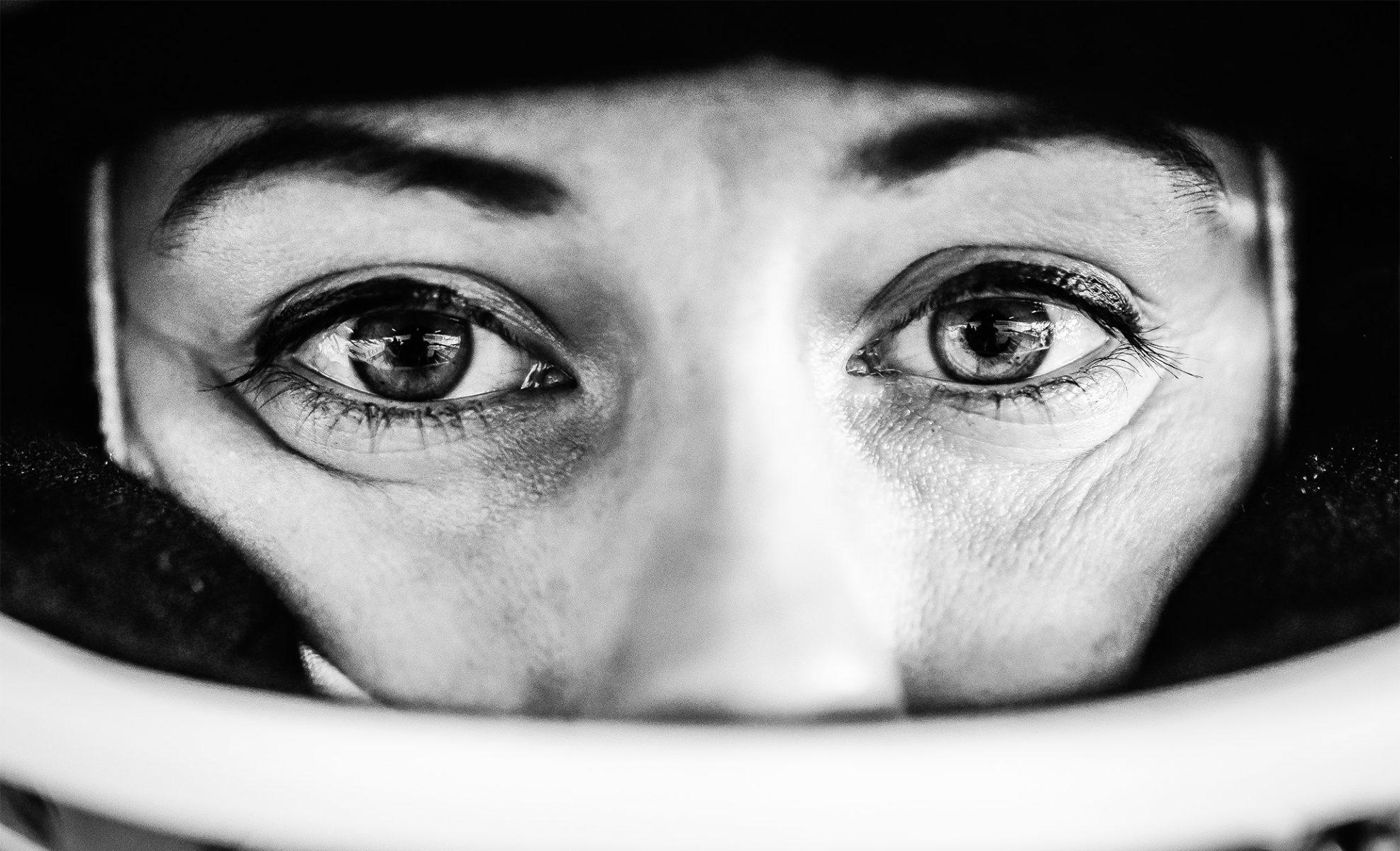
Female Motorsport: No Longer The Pits
“Initially, I was just worried that it was going to be another gimmick,” says racing driver Abbie Eaton about the W Series. Instead the new female-friendly races gave her good results and helped her on the path to success
By Katy Fairman
In motorsport, gender doesn’t matter. The only thing that matters is going fast. Once that visor goes down on your helmet, you’re just there to race. It’s as simple as that. However, despite the fact men and women can race with one another, it doesn’t always mean they do. For many, Formula 1 is the pinnacle of motorsport. Since its very first race back in 1950, hundreds upon hundreds of drivers from all around have started a Grand Prix. How many women are on that list? Just two, with the most recent being Lella Lombardi almost 50 years ago.
It’s fair to say Formula 1 is not totally representative of the ratio of men to women in competitive motorsport. Just last year, six out of the 186 participants at the 24 Hours of Le Mans, the world’s most famous endurance race, were women. It’s not perfect, but it’s progress.
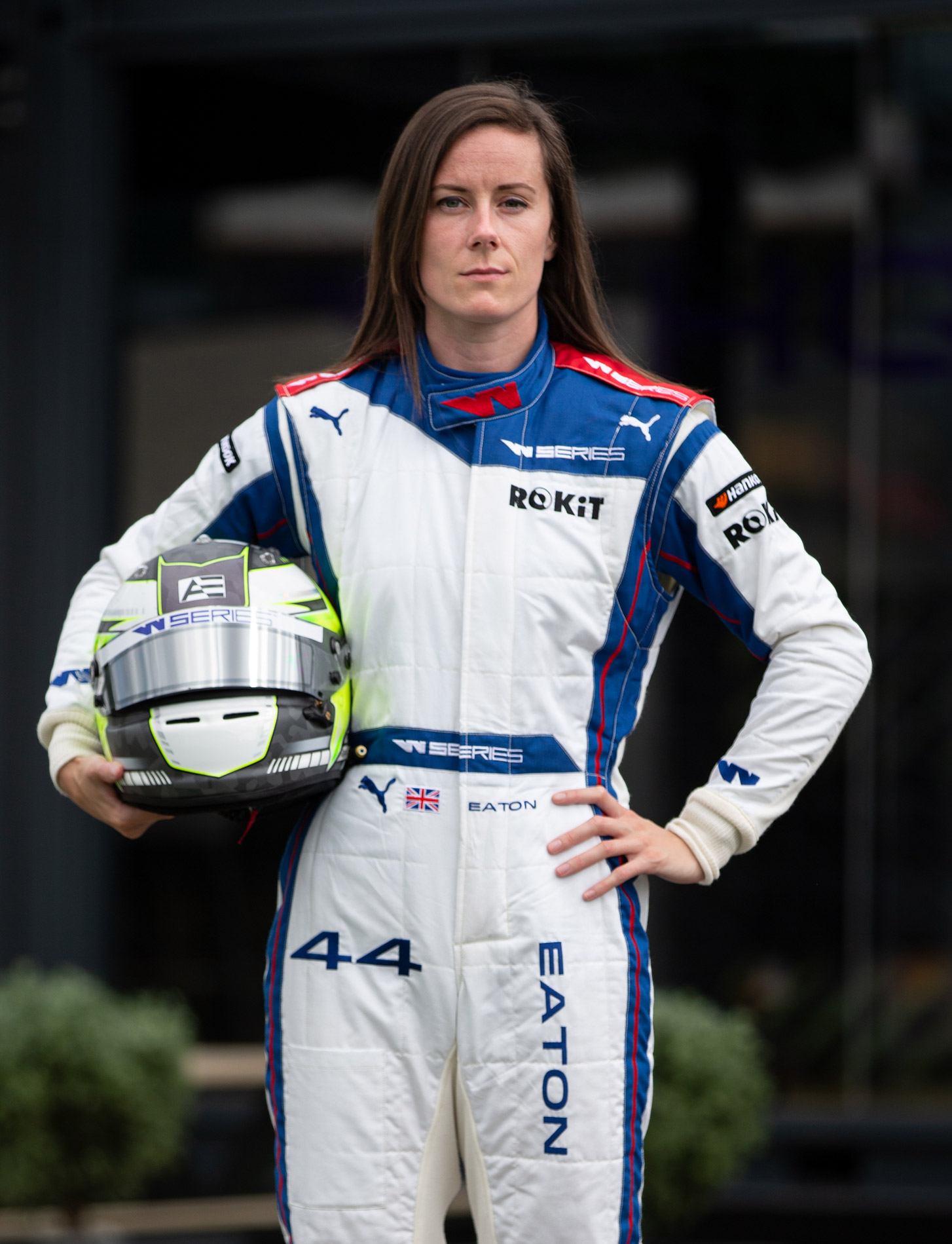
So, why is there still a very significant gender divide in motorsport? Well, it’s not the kind of answer you can give in an elevator pitch. There’s no doubt that funding has a huge responsibility – racing competitively is extremely expensive and is sometimes referred to as a billionaire boys’ club. Lack of opportunities and fewer women taking it up at a young age are also significant contributing factors. It’s an unfortunate cycle that has existed for generations. Enter W Series. To many, it might have sounded like a fairytale. It was a newly-founded racing series, totally free to enter and with an astonishing prize pot of $1.5 million. It also promised the 20 drivers that qualified an inaugural six-race calendar in Europe. Oh, and it was only open to women.
Described as an artificial platform, the series was adamant that it wasn’t about segregation but instead offering more opportunities to women in racing. However, some doubted the concept for fear it was just another PR exercise or actually a step backwards for motorsport. Worryingly, these comments didn’t just come from armchair experts on social media but well-respected and talented women in motor racing.
One of those was Abbie Eaton.
PROGRESS
Having grown up around motorsport thanks to her father, who would race bikes, cars or pretty much anything he could, Abbie knew from an early age that she had racing in her DNA too. After spending her childhood at racetracks watching her dad compete, she was gifted a go-kart aged ten and from there developed her craft and her skills behind the wheel and on the throttle.
After graduating from karts to cars after four years, Abbie continued to progress through various championships and make a great name for herself in racing. However, despite her glowing racing CV, many people know Abbie Eaton as the test driver on The Grand Tour – the Amazon Prime show fronted by Jeremy Clarkson, Richard Hammond and James May. “At that time, I didn’t have any racing,” Abbie confesses when we started talking about The Grand Tour. “All my career has been racing as and when I could afford to, so there are massive gaps everywhere throughout the years. “That particular year, I wasn’t racing, and I just thought I haven’t really got anything to lose. I will either be super fast or end up in some trees somewhere,” she jokes.
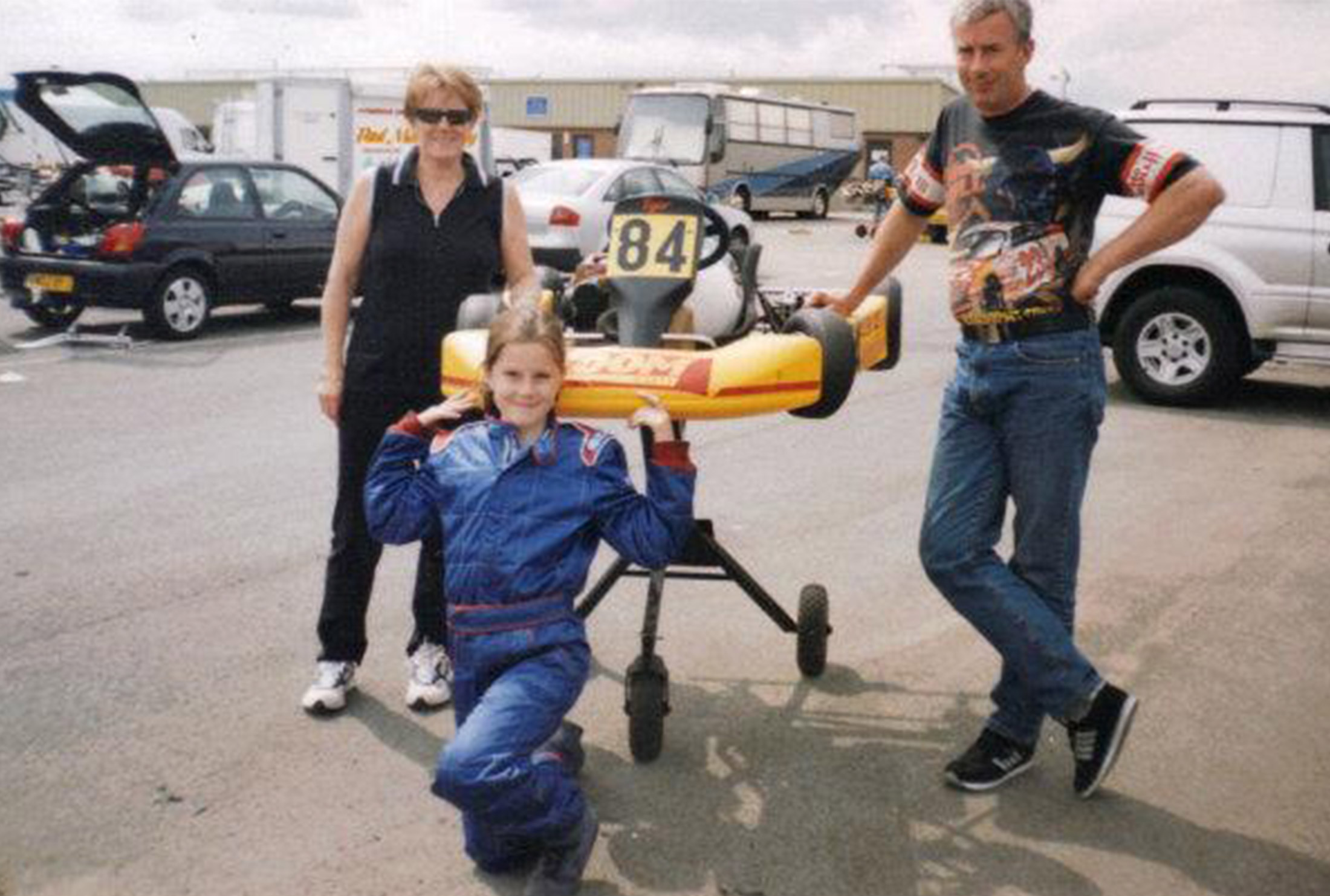
It’s refreshing to hear Abbie talk openly about the reality of ’having the money to race’. You might see figures in the media like Lewis Hamilton, who is now one of the sport’s highest-paid drivers, and think he’s always been in a fortunate financial position, but it’s not always the case. When asked what she did during those gaps when she wasn’t racing, Abbie was quick to respond: “question life.”
“I think the first year ‘out’ that I thought ‘this is shit’ was 2010. I had just moved from junior cars into senior racing and won the championship straight out of the box. I thought there’ll be some progression from here. “My parents had spent the money that was their limit, and I didn’t have any investors or any sponsors. So I had to sit out. I put all this effort, work and motivation towards getting the drives and to continue my kind of success, and I was just sat on the sidelines. It was absolutely horrible.
TALENTED
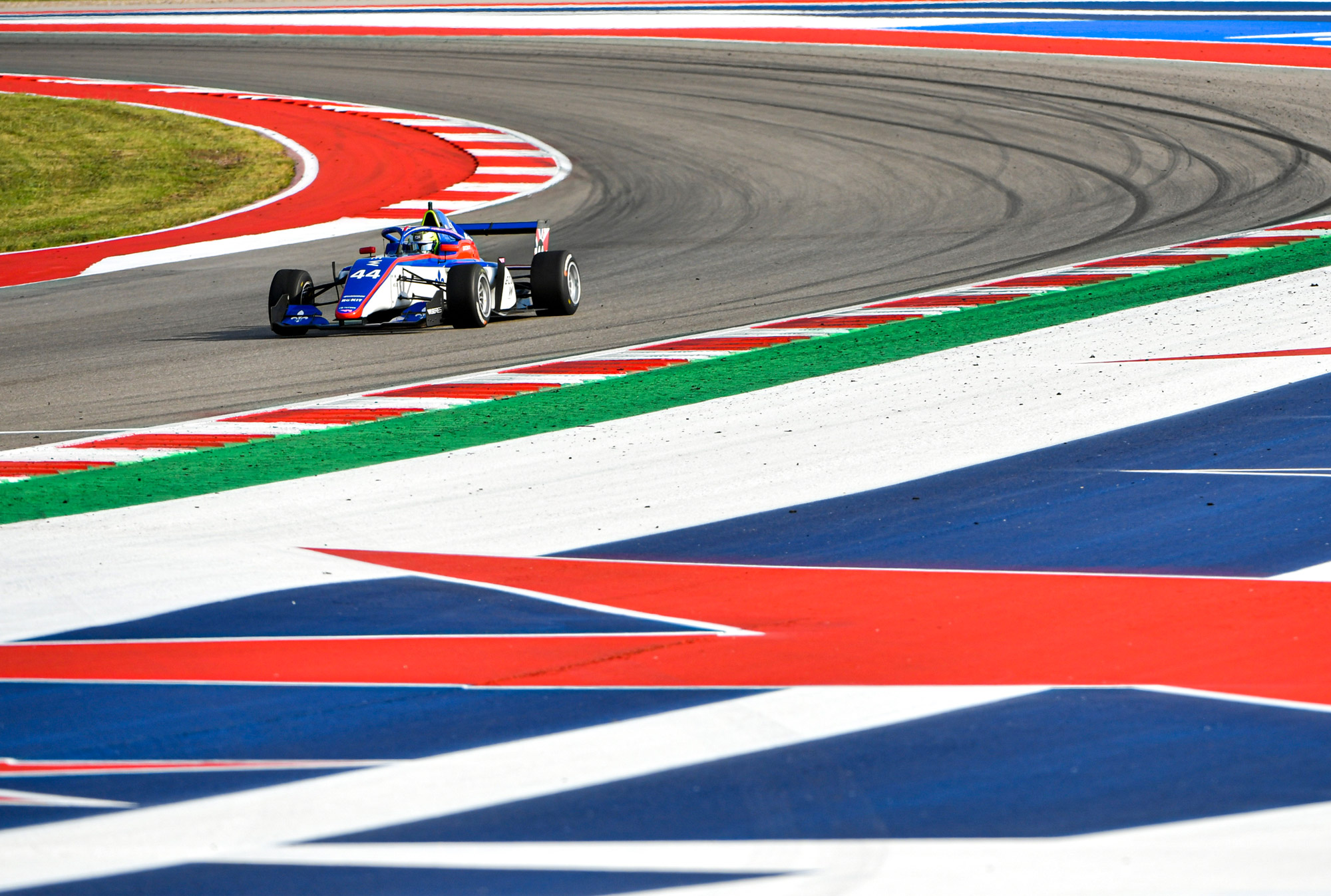
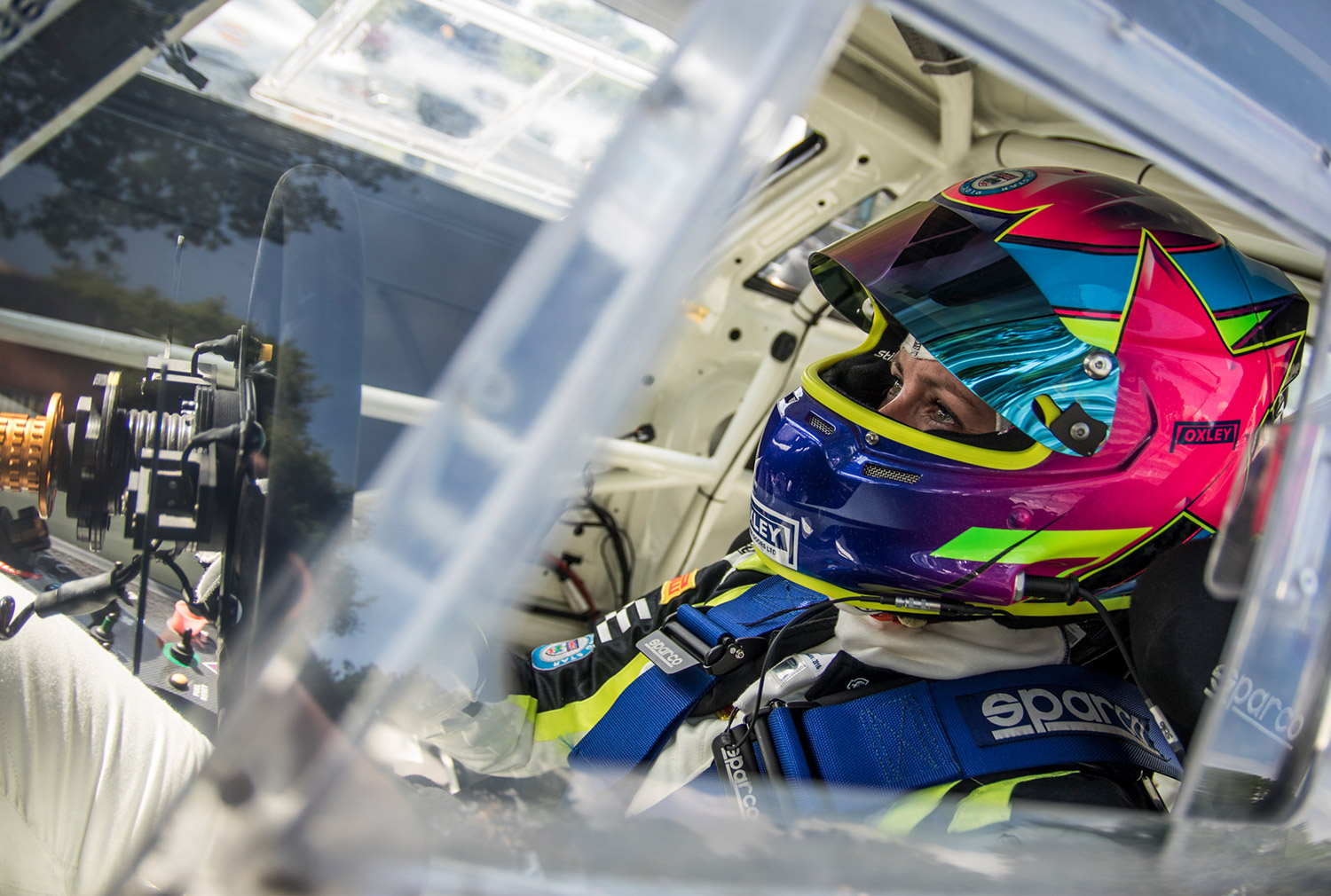
“It was really the first time I questioned whether I wanted to continue doing it. Generally in sport, if you put the effort in, you work hard, you’re passionate and you’re motivated, you’ll get to where you want to go. Motorsport is not like that. Unfortunately, people can come with a big chequebook and leapfrog you. Love it or hate it, we’re all still addicted to motorsport. It is one of those things.” These common occurrences of talent not always guaranteeing success when money is involved would make you think an opportunity like W Series would be the perfect fit for Abbie. So why did she not trust in the process? “Initially, I was just worried that it was going to be another gimmick.”
Racing championships only for women have existed in the motorsport space before. It’s also a no brainer that the media opportunities which could come from having the first female in almost 50 years taking part in an F1 race would be monumental. “Previous female championships – it’s almost a bit of a circus. There’s such hype on trying to get females into F1 and get more females in the sport. I think it can generate a lot of money, and it sounded too good to be true. Completely free to enter? Winning a massive prize fund at the end? I was just like, ‘this just sounds like absolute lies’.”
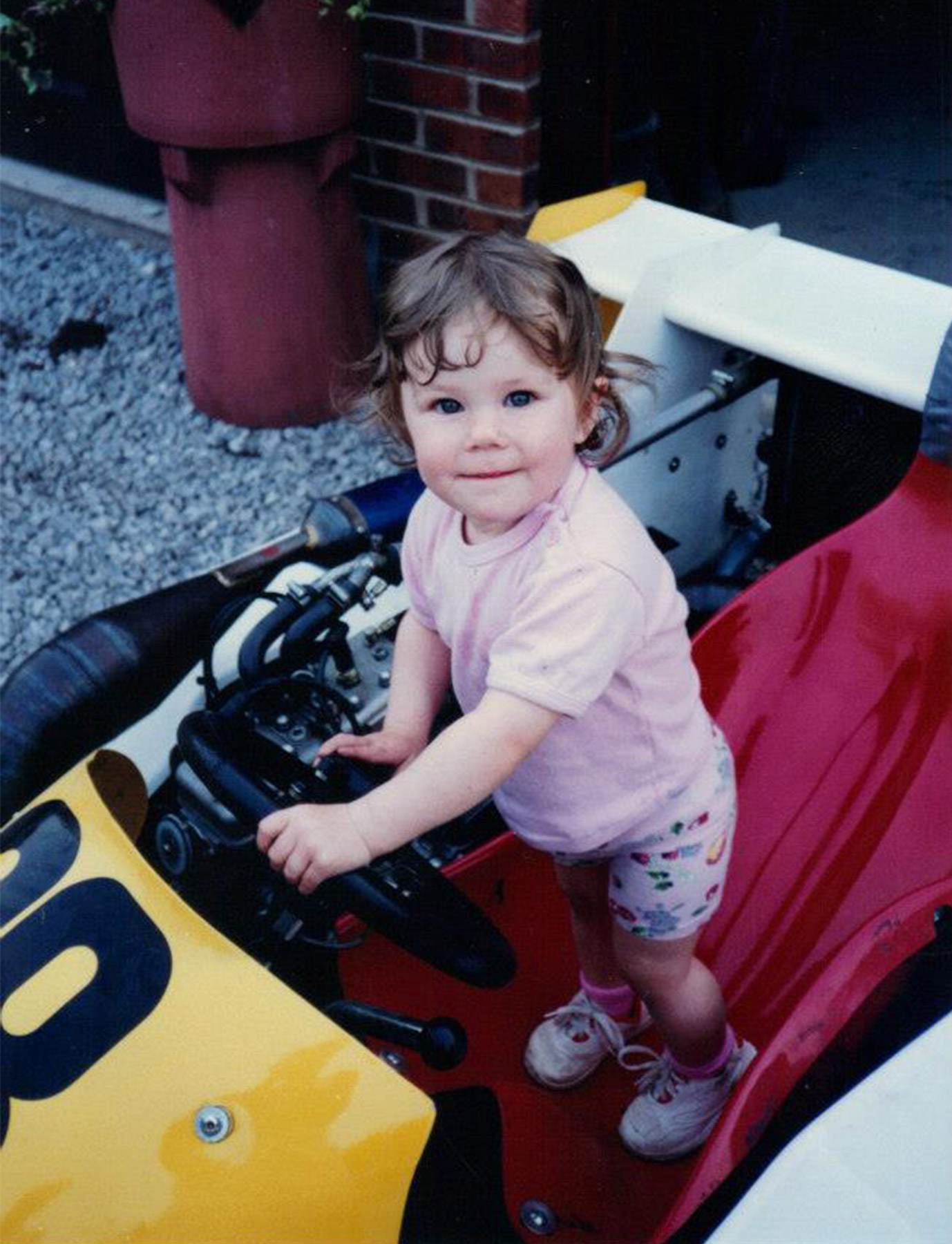
One individual who sympathised with Abbie and her concerns is Catherine Bond Muir, the CEO of W Series. Discussing the various criticisms the series has faced, both in its inception and now after it’s completed its second season, Catherine explains she too had those thoughts herself when helping create the foundations of W Series. “Abbie asking ‘is it going to be a bit of a circus?’ or ‘is it going to exploit women?’ is not an unreasonable view,” Catherine states when asked what it was like seeing high profile racing drivers having negative opinions of a series that was just intending to help.
Abbie’s opinion did change, though, and she joined W Series for the second season. However, it didn’t start as planned. Not only did the global pandemic put everything on hold for a year, which meant no racing and lots of home-based training, but Abbie also had a prolapsed disk in her neck which raised its ugly head months before the new season was to get underway. However, once racing did begin again, W Series was an official support series of Formula 1. Abbie managed to pick up four top ten results in the first six races, with her best result being two sixth-place finishes.
PASSIONATE
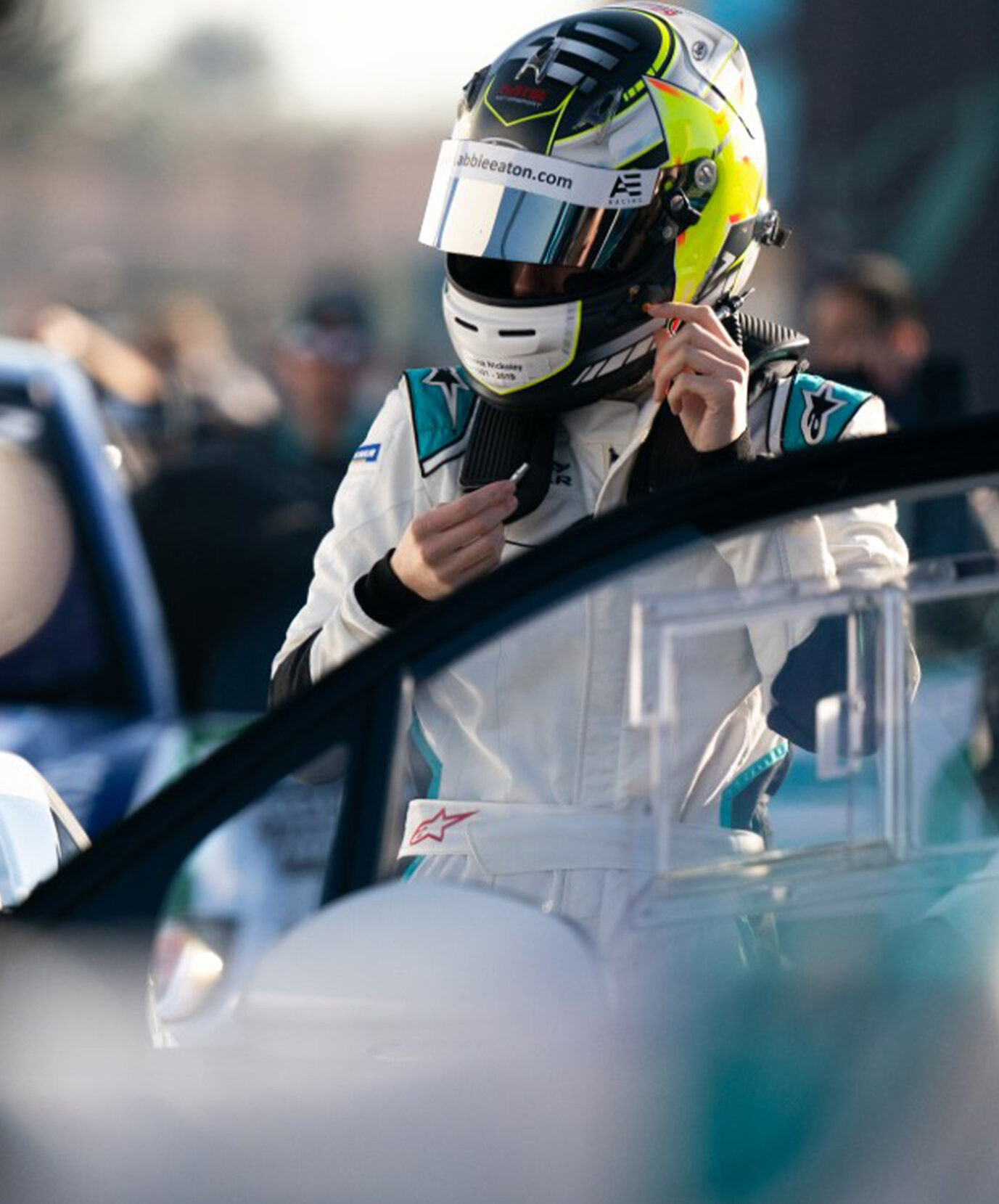
Racing in W Series also presented another strange challenge for Abbie: racing alongside her girlfriend, Jessica Hawkins. The two had met through the industry, with motorsport generally being a pretty small world. But it was at the W Series training camp that their relationship blossomed, and they realised they got on really well.
“It’s very easy when you’ve got someone that’s in the sport and gets it,” Abbie says about her relationship with Jess. “It’s very difficult when you try to explain to someone outside the sport the kind of demands on you or when you have to literally drop something to go and do a race or have another opportunity.” As for racing on the track, that came with its own stresses. “We were able to keep away from each other, which was very good for my blood pressure.”
During a race in Zandvoort last year, the two of them were almost nose to tail for the entire race, and there was concern they would accidentally take each other out. But it’s evident that they both want the best for the other, just as you’d come to expect from any loving partnership.
Unfortunately for Abbie, her debut season in the W Series ended abruptly when she suffered a severe injury to her spine during a race in the US last October. Driving over a safety feature that’s known as a sausage kerb, the force of the impact broke her back and has seen her need a constant brace and physical therapy. Abbie is on the mend, though and is now recently brace free and already thinking about racing again when the next season of W Series gets underway in Miami in May.
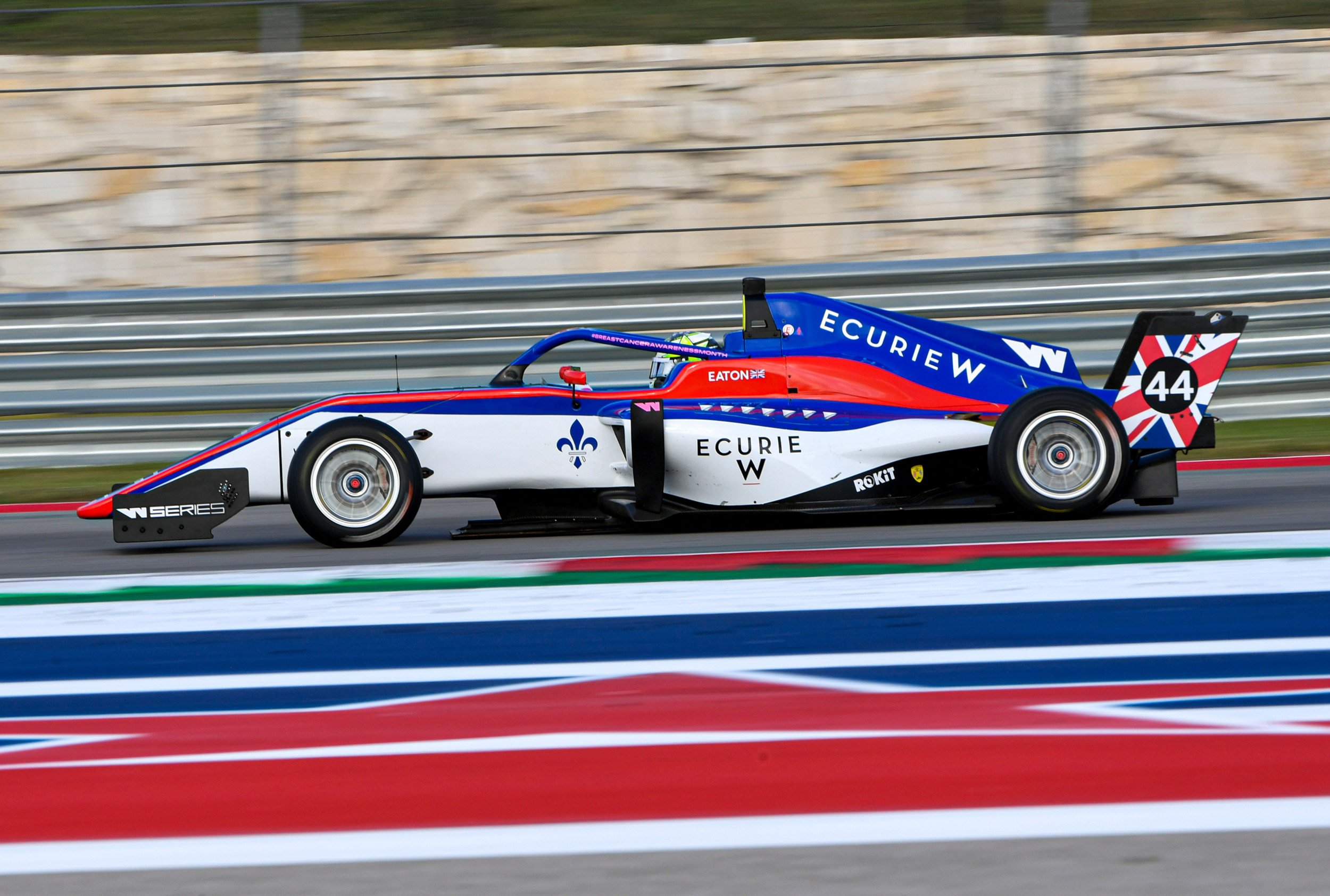
Editorial Design Root

